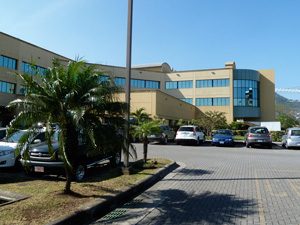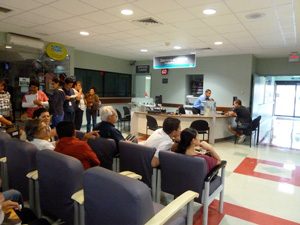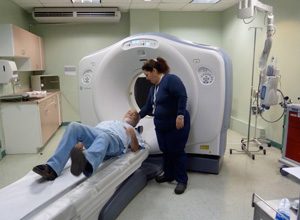Kat Sunlove, TheCostaRicaNews.com.
As more Baby Boomers near retirement with less of a nest egg than they had anticipated a few years ago, many are looking to Costa Rica as an attractive option. Not only is the weather here splendid virtually year-round but compared to most parts of the United States, the cost of living makes it possible to live comfortably on limited Social Security income, depleted savings and shrunken investment portfolios. With the extensive coverage in TheCostaRicaNews.com of retirement, residency processes and other aspects of expat life in Costa Rica, this weekly publication has developed a loyal following of readers interested in getting questions answered before making the big move to retire here.
Recently I received this note from Douglas R. (not his real name) who resides in Central Texas:
Dear Kat,
I am currently 50 years old and have been working since I was 12. So I’m thinking about retirement seriously for the first time in my life. I am single with no children; however, I am dating a wonderful woman who isn’t completely sold on the idea of living in Costa Rica. I’m wondering if you could answer a few basic questions.
- Is Costa Rica relatively safe? I know, quite a broad question. Guess I want to move into a situation where I feel embraced and not looked at as a hated outsider.
- Is the health care really that great AND affordable?
- Which areas of the country would you recommend my researching in terms of lower cost, access to medical facilities, and golf! We really enjoy golfing and would prefer to live near golf courses if possible.
- Are there jobs (part-time) for older people like me? I’m thinking of just supplementing my income but it’s not a necessity.
- Is the cost of living comparable to the US?
Thanks for your time!
Thanks for your questions, Douglas, and the opportunity to address such pertinent points of interest to many other readers. In order to do justice to your inquiries, however, I will only tackle the first two in this column. Look for answers to your other queries next week.
In considering the issue of safety, I would first ask how safe you feel in the United States. For instance, when I clicked on the San Francisco Chronicle website one day last week, here were a few of the story headlines:
Central Valley boy, mom found; boyfriend held
Body washes up on rocks at S.F.’s Fort Mason
D.A.: Oakland police justified in shooting barber
Man found shot to death in Berkeley backyard
Any one of those items would be big news here in Costa Rica. In contrast, take note of the headlines last week in TheCostaRicaNews.com:
Costa Rica & Brazil Cooperate in Nanotechnology & Aerospace Engineering
Costa Rican Students Go to International Science & Engineering Fair
Researching Climate Change on the Osa Peninsula
Of course, the truth is more complicated than headlines alone reveal and just as in North America, safety in Costa Rica depends largely on where you choose to live. Like major cities everywhere, San Jose, Alajuela or Cartago all have their share of crime, from petty theft to armed robberies and home invasions to the occasional murder. Tourist areas frequently make a good target simply because, to the average Tico, all foreigners are “rich” and tourists can be careless. Moving here and building a fancy home in a gated enclave may be akin to painting a bulls-eye on your back.

Here in Atenas, on the western edge of the Central Valley, where my husband Layne and I live, we feel very safe. Walking home the other night from a restaurant about a kilometer from our home, we noted youngsters riding their bikes, young people sitting on the church steps talking, families gathered on their porches to enjoy the balmy evening air. Everyone we passed spoke to us in friendly tones, smiling and wishing us “Buenas noches.” There were streetlights all along the way and our neighbors now recognize us by our regular hikes into town. Elsewhere, the neighborhood feeling could be quite different but in general, Ticos are friendly, welcoming people and you would rarely feel like a “hated outsider.” So long as you don’t set yourself apart by bringing “Ugly American” attitudes with you or callously criticizing their culture, you will most likely receive a warm Tico reception.

As for health care, my husband recently had an unexpected introduction to the excellent and affordable medical care here when he experienced a sudden but temporary blurring of vision, suggesting a possible mini-stroke. Prompt attention from a competent medical professional was critical and fortunately was available to him through Linea Vital, the private medical group we joined a few months ago.
Here in Atenas as in many other areas of Costa Rica, such medical groups offer a supplement to the nationalized health insurance program known as Caja Costarricense de Seguro Social, or CAJA. The cost of CAJA is based on income; in our case, we pay $87 per month for both of us, with no limitations on pre-existing conditions and normally no co-pays. Medications are not covered. CAJA clinics are located in virtually every community, from the smallest mountain village to the many locations in San Jose. Although we joined CAJA as part of our legal residency process, we have not yet used those services. A number of friends, however, have shared their CAJA experiences with us and for the most part, the reports have been positive, particularly in emergency situations. However, for routine medical care or quick appointments to see a doctor, middle-class Ticos and many Gringos turn to the private groups to avoid long waits. In our case, for a “premium” membership at Linea Vital, we pay $65 per month for both of us, which includes free doctor’s visits, house calls, annual physicals, ambulance service and other things such as phone consultations.

During Layne’s “health event,” I was in Texas visiting my mother so he called our wonderful Tico landlords for assistance. They sent an ambulance quickly which took him to the Linea Vital clinic five minutes away where the doctor on duty did a thorough exam and gave him medication for high blood pressure. The following day, after I had returned to Costa Rica, we went back to Linea Vital where he was seen by his regular doctor who gave him an EKG, gave him another prescription and referred him for a CT brain scan at CIMA Hospital, a highly regarded medical facility in San Jose. There was no charge for the ambulance or the EKG.
Arrangements with CIMA were easily handled by phone with English-speaking staff and via email for forms to complete. The cost of the brain scan was about $440, a fraction of a similar procedure in the United States, probably even less than a Medicare co-pay. CIMA Hospital, like most hospitals here, is extremely high-tech, very clean and equipped with the latest x-ray and magnetic imaging machines. The professional staff were kind and courteous. Our wait in the reception area was only about a half hour, the scan went quickly and overall we were quite pleased with our experience there.
So after a year of living here, Layne and I are very happy both with our sense of safety and acceptance as well as our recent incident using the Costa Rican health care system. As I often say, no place is perfect but for quality of life, cost of living and modern health care, Costa Rica ranks very high!
Do you have questions or comments? Log in to leave a comment below, or email your questions directly to [email protected].

